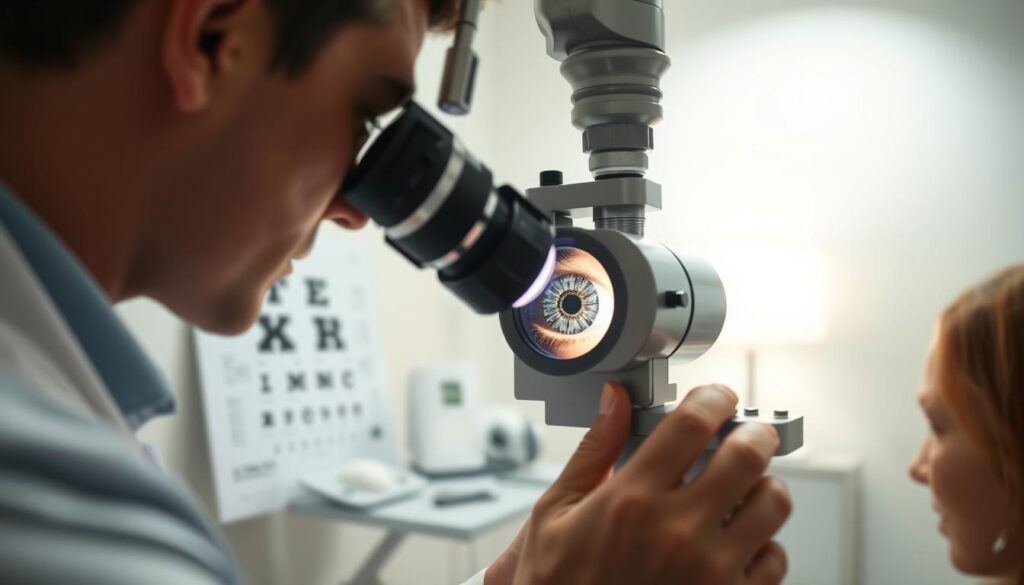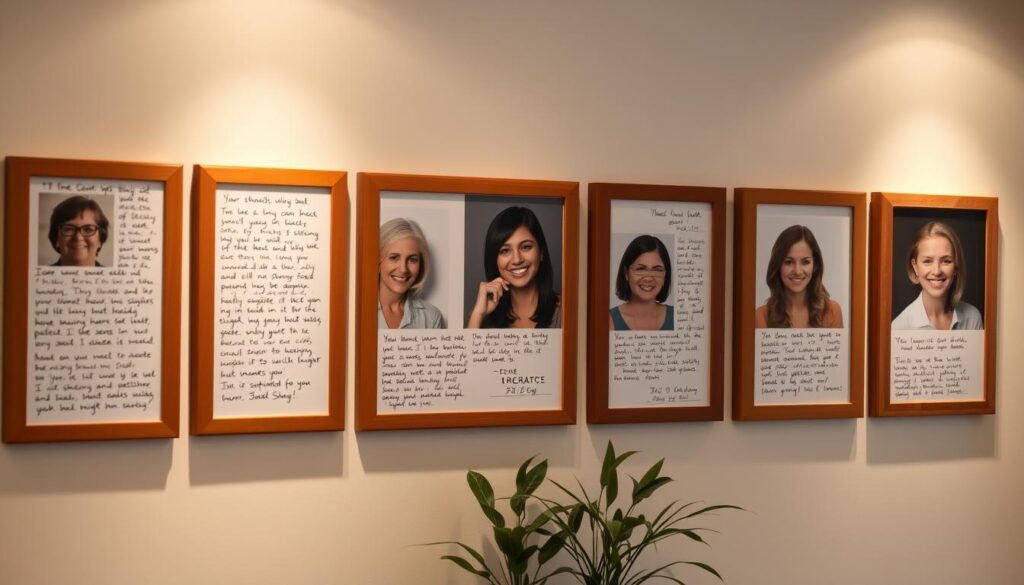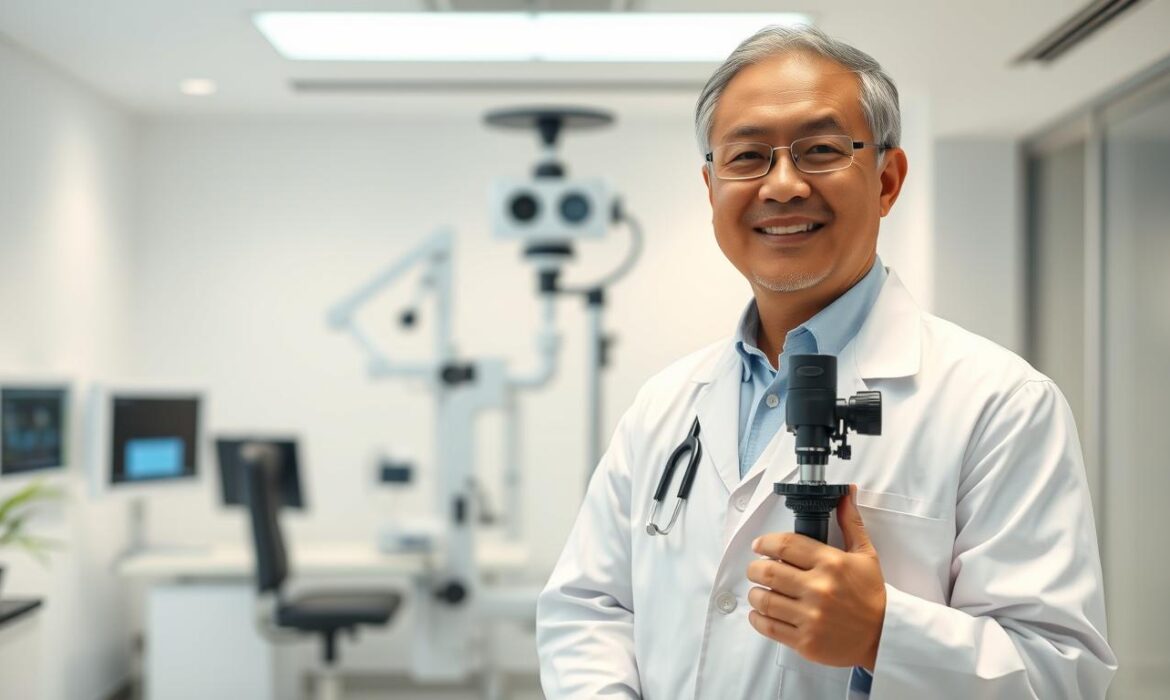Singapore is known for its world-class healthcare system, and its eye care services are no exception. The city-state is home to some of the most skilled and globally recognized doctors in the field. Whether you need routine check-ups or advanced treatments, Singapore offers a wide range of options to meet your needs.
Clinics like Novena Specialist Centre and Elizabeth Novena Specialist are at the forefront of providing exceptional care. These facilities are equipped with cutting-edge technology and staffed by experienced professionals. For those considering refractive surgeries, the SNEC Laser Vision Centre is a leader in the field, offering innovative solutions for vision correction.
Singapore’s excellence in ophthalmology is further validated by its ranking in The Ophthalmologist Power List 2023. This recognition highlights the country’s commitment to delivering top-tier eye care. Advanced treatments such as MIGS (Minimally Invasive Glaucoma Surgery) and PGI implants are also readily accessible, ensuring patients receive the best possible care.
Key Takeaways
- Singapore is a hub for world-class eye care services.
- Novena Specialist Centre and Elizabeth Novena Specialist are leading clinics.
- SNEC Laser Vision Centre excels in refractive surgeries.
- Ranked in The Ophthalmologist Power List 2023.
- Advanced treatments like MIGS and PGI implants are accessible.
Why Finding the Best Eye Specialist in Singapore Matters
Maintaining clear vision is essential for overall health and quality of life. Regular check-ups can help detect issues early, preventing complications down the line. In Singapore, undiagnosed eye conditions account for 40% of vision loss cases, according to SingVision. This makes timely care crucial.
The Importance of Regular Eye Check-ups
Routine exams are more than just a formality. They can catch problems like diabetic retinopathy, which affects one in three long-term diabetes patients. Early detection can prevent 90% of diabetes-related blindness. Facilities like the SNEC Ocular Reading Centre process over 500 retinal scans daily, ensuring accurate diagnoses.
Common Eye Conditions in Singapore
Myopia in children and age-related macular degeneration in seniors are on the rise. These conditions can severely impact daily life if left untreated. Organizations like VisionSave are working to provide eye care for underprivileged communities, ensuring everyone has access to essential services.
Interestingly, SingVision’s research has also linked retinal scans to early Alzheimer’s detection. This highlights the broader role of eye health in overall well-being. Prioritizing regular check-ups is a small step with significant benefits.
Types of Eye Specialists You Should Know
Eye care is a specialized field with various professionals offering distinct services. Whether you need a routine check-up or advanced treatment, understanding the roles of these experts ensures you receive the right care.
Ophthalmologists vs. Optometrists
Ophthalmologists are medical doctors trained to diagnose and treat eye diseases. They can perform surgeries and prescribe medications. In contrast, optometrists focus on vision correction, prescribing glasses, and managing conditions like myopia.
Interestingly, 98% of Singaporean ophthalmologists have received international training through the SHMDP program. This ensures they stay updated with global advancements in eye care.
Specialized Eye Surgeons
For complex conditions, specialized surgeons play a crucial role. Dr. Chelvin Sng, for instance, is renowned for her pioneering work in glaucoma surgery, particularly MIGS and PGI implants. These minimally invasive techniques offer faster recovery and better outcomes.
At the Eagle Eye Centre, surgeons perform advanced procedures like blepharoplasty, which corrects eyelid issues. The center also offers 12 subspecialties, including neuro-ophthalmology, catering to diverse patient needs.
| Professional | Role | Services |
|---|---|---|
| Ophthalmologists | Diagnose and treat eye diseases | Surgery, medication |
| Optometrists | Vision correction | Glasses, contact lenses |
| Specialized Surgeons | Complex eye surgeries | MIGS, blepharoplasty |
Top Eye Clinics in Singapore
Singapore’s healthcare landscape is renowned for its advanced facilities and specialized clinics. These centers combine state-of-the-art technology with expert care, making them a top choice for patients. Among the leading names are the Novena Specialist Centre and Elizabeth Novena Specialist, both known for their exceptional services.
Novena Specialist Centre
The Novena Specialist Centre is part of the Novena Medical Park cluster, home to over 15 ophthalmology practices. This hub offers a wide range of services, from routine check-ups to advanced treatments. With a focus on patient convenience, wait times here are significantly shorter compared to public hospitals—often just three days versus two weeks.
Elizabeth Novena Specialist
At Elizabeth Novena Specialist, innovation takes center stage. The clinic houses Asia’s first Photorefractive Cross-Linking (PiXL) suite, a groundbreaking technology for vision correction. Additionally, they offer same-day cataract surgery protocols, ensuring quick and efficient care for patients.
- SNEC Laser Vision Centre performs over 1,200 LASIK procedures annually, making it a leader in refractive surgeries.
- Eagle Eye Centre’s retinal detachment emergency response team provides swift care for critical cases.
- Both clinics prioritize cutting-edge treatments and patient-centered care.
For those seeking specialized care, the Chelvin Sng Eye Centre, located at Mount Elizabeth Novena Specialist Centre, is a trusted option. This specialized clinic is known for its expertise in advanced procedures and personalized care.
Services Offered by Top Eye Specialists
When it comes to advanced eye care, Singapore offers a variety of specialized services tailored to individual needs. From cutting-edge refractive surgery options to effective treatments for age-related macular degeneration, patients have access to world-class solutions.

Refractive Surgery Options
For those seeking clearer vision, refractive surgery provides effective solutions. Procedures like LASIK Xtra™ and ICL (Implantable Collamer Lens) are popular choices. LASIK Xtra™, priced at $3,800, offers a high success rate, while ICL, at $6,500, is ideal for patients with thinner corneas.
At the Eagle Eye Centre, the SMILE® pro procedure achieves 20/20 vision in 92% of patients. For those with low prescriptions, the PiXL non-invasive correction is a groundbreaking option. SNEC’s StreamLight™ TransPRK is another advanced choice, particularly for patients with thin corneas.
Treatment for Age-Related Macular Degeneration
Age-related macular degeneration (AMD) is a leading cause of vision loss in seniors. Anti-VEGF injections have shown to slow AMD progression by 70%, making them a vital part of treatments. Combination therapies for both dry and wet AMD are also available, offering comprehensive care.
Facilities like the SNEC Ocular Reading Centre process over 500 retinal scans daily, ensuring accurate diagnoses and timely interventions. These advancements highlight the importance of early detection and personalized care for managing AMD effectively.
How to Choose the Right Eye Specialist for You
Choosing the right professional for your vision needs can feel overwhelming, but with the right guidance, it becomes much simpler. Whether you’re scheduling your first appointment or seeking advanced care, knowing what to look for can make all the difference.
Factors to Consider
When selecting a professional, start by evaluating their credentials. Look for fellowship certifications and specialized training. High surgical volume is another key indicator of experience. Clinics with access to advanced technology, like OCT scanners, are better equipped to handle complex cases.
It’s also helpful to research their reputation within the community. Patient reviews and testimonials can provide valuable insights. Additionally, leveraging tools like the MOH’s Clinic Compare portal can help you assess complication rates and make an informed decision.
Questions to Ask During Your Consultation
During your consultation, don’t hesitate to ask detailed questions. For example, inquire about their experience with specific procedures, such as MIGS. A good question to ask is, “How many MIGS procedures have you performed this year?”
Be cautious of clinics that lack essential equipment, like visual field testers. These are red flags that may indicate limited capabilities. Clear communication and transparency are signs of a trustworthy professional.
- Checklist: Fellowship credentials, surgical volume, technology access.
- Essential questions: “How many MIGS procedures have you performed this year?”
- Red flags: Clinics without OCT scanners or visual field testers.
- Leverage MOH’s Clinic Compare portal for complication rate data.
Understanding Eye Surgery in Singapore
Eye surgery in Singapore has become a reliable solution for those seeking improved vision and better quality of life. With advanced technologies and skilled professionals, patients can access a range of procedures tailored to their needs. From refractive surgeries to minimally invasive techniques, the options are both effective and efficient.

LASIK and Other Refractive Surgeries
LASIK is one of the most popular refractive surgeries, offering quick results and high satisfaction rates. At the SNEC Laser Vision Centre, the procedure boasts a 98.6% success rate. Another innovative option is the SMILE® pro, which takes just eight minutes and achieves 20/20 vision in 92% of patients.
For those with thinner corneas, the ICL (Implantable Collamer Lens) is a viable alternative. These procedures are designed to correct vision issues like myopia, hyperopia, and astigmatism. Patients can expect minimal discomfort and a swift recovery.
Minimally Invasive Glaucoma Surgery (MIGS)
MIGS is revolutionizing glaucoma treatment with its minimally invasive approach. This procedure reduces intraocular pressure by 30% and offers a recovery time five times faster than traditional methods. Devices like the iStent and Hydrus Microstent are commonly used, each with unique benefits.
Dr. Chelvin Sng has pioneered the use of PGI implants, achieving remarkable success in managing glaucoma. Post-op care for MIGS includes regular follow-ups and adherence to prescribed medications to ensure optimal results.
For more information on expert eye care services, explore trusted clinics in Singapore.
Female Ophthalmologists in Singapore
The field of ophthalmology in Singapore is witnessing a significant rise in female leadership, setting a global benchmark. With 27% of leadership roles held by women, Singapore surpasses the global average of 18%. These professionals are not only excelling in their careers but also inspiring the next generation of practitioners.
Challenges and Achievements
Despite their progress, female ophthalmologists face unique challenges. A 2022 JAMA study revealed a 23% pay gap in ophthalmic academia, highlighting the need for systemic change. However, initiatives like the Women in Ophthalmology (WIO) Singapore Chapter are working to address these disparities and promote gender equality in the field.
Dr. Chelvin Sng, the only Singaporean private practitioner on the 2023 Power List, is a testament to these achievements. With four Power List appearances and a fellowship from Moorfields Eye Hospital, she has become a role model for aspiring professionals. Her pioneering work in glaucoma surgery has earned her international recognition.
Top Female Eye Specialists
Singapore is home to several leading female ophthalmologists who are making a difference. Dr. Sng’s contributions are complemented by the efforts of others, such as the team at Eagle Eye Centre, where 40% of surgeons are women. This diversity ensures a wide range of perspectives and expertise in patient care.
- Dr. Chelvin Sng: Featured in the top 100 Power List for four consecutive years.
- Eagle Eye Centre: Boasts a 40% female surgeon ratio, setting a standard for inclusivity.
- WIO Singapore Chapter: Advocates for gender equality and professional development.
These professionals are not only advancing the field but also paving the way for future generations. Their achievements highlight the importance of diversity and inclusion in healthcare.
Eye Care for Different Age Groups
Vision care needs vary significantly across different stages of life, requiring tailored approaches for each age group. From childhood to senior years, proactive measures and specialized treatments ensure optimal eye health.

Pediatric Eye Care
Children’s vision requires special attention, especially with rising cases of myopia. Myopia control lenses have been shown to reduce progression by 60%, offering a practical solution for young patients. Programs like Eagle Eye’s Myopia Master emphasize regular eye screening every six months to monitor and manage vision changes effectively.
For conditions like strabismus, surgical interventions boast a 92% success rate in achieving proper alignment. Early detection and treatment are crucial to prevent long-term complications and ensure healthy visual development.
Geriatric Eye Care
As we age, the risk of eye disease increases significantly. By age 70, 80% of seniors show early signs of cataracts, making regular check-ups essential. Advanced treatments like combination therapies for cataracts and age-related macular degeneration (AMD) provide comprehensive care for older adults.
Initiatives like Healthier SG Silver offer subsidized screenings, making preventive care accessible to more seniors. These programs play a vital role in maintaining vision and overall quality of life in later years.
- Myopia control lenses reduce progression by 60% in children.
- Eagle Eye’s Myopia Master program includes 6-month checkups.
- Pediatric strabismus surgery has a 92% success rate.
- Geriatric combo therapies manage cataracts and AMD effectively.
- Healthier SG Silver provides subsidized screenings for seniors.
Innovations in Eye Care
The field of ophthalmology is rapidly evolving, with groundbreaking advancements shaping the future of vision care. From cutting-edge technologies to transformative research, these developments are revolutionizing how we diagnose, treat, and prevent eye conditions.
Latest Research and Technologies
One of the most exciting breakthroughs is SNEC’s AI diabetic retinopathy detector, boasting a 99.1% accuracy rate. This technology enables early detection, significantly reducing the risk of vision loss. Similarly, phase III trials for sustained-release AMD implants show promising results, with six-month efficacy in slowing disease progression.
Singapore is also at the forefront of bionic eye prototypes, offering hope for patients with severe vision impairment. These devices aim to restore partial sight by converting visual data into electrical signals that the brain can interpret.
Future Trends in Ophthalmology
Tele-ophthalmology is emerging as a game-changer, particularly for rural ASEAN communities. This approach allows remote diagnosis and treatment, bridging the gap in access to care. Dr. Chelvin Sng’s patented PGI implant manufacturing process is another milestone, enhancing the precision and effectiveness of glaucoma treatments.
Looking ahead, gene therapy is predicted to become a standard treatment for inherited retinal diseases by 2028. This innovative approach targets the root cause of genetic conditions, offering long-term solutions.
| Innovation | Description | Impact |
|---|---|---|
| AI Diabetic Retinopathy Detector | 99.1% accuracy in early detection | Reduces risk of vision loss |
| Sustained-Release AMD Implants | Six-month efficacy in phase III trials | Slows disease progression |
| Bionic Eye Prototypes | Restores partial sight | Improves quality of life |
| Tele-Ophthalmology | Remote diagnosis and treatment | Expands access to care |
Patient Testimonials and Success Stories
Hearing directly from patients can provide valuable insights into the quality of care. These real-life experiences highlight the transformative power of advanced treatments and the dedication of skilled professionals. From vision restoration to life-changing surgeries, these stories showcase the impact of modern eye care on individuals and the community.

Real-Life Experiences
One inspiring story comes from a marathon runner who achieved 20/15 vision after undergoing LASIK at the SNEC Laser Vision Centre. “I can now run without worrying about glasses or contacts,” they shared. Another patient, a glaucoma sufferer, praised MIGS for allowing them to garden again without relying on eye drops. “It’s given me back my independence,” they said.
VisionSave, a non-profit initiative, has restored sight for over 800 low-income individuals in 2023. Their work ensures that everyone, regardless of financial status, has access to essential care. Corporate partnerships have also played a crucial role, funding pediatric myopia screenings for underprivileged children.
How Top Specialists Made a Difference
At the Novena Specialist Centre, a 4.9/5 average rating across 1,200+ reviews speaks volumes about their commitment to excellence. One standout achievement is SNEC’s fastest retinal reattachment record—just 28 minutes. This efficiency not only saves vision but also reduces recovery time for patients.
| Initiative | Impact |
|---|---|
| VisionSave | Restored sight for 800+ individuals |
| Corporate Partnerships | Funded pediatric myopia screenings |
| SNEC Retinal Reattachment | Record time of 28 minutes |
These success stories are a testament to the expertise and compassion of Singapore’s eye care professionals. They inspire confidence in those seeking treatment and highlight the importance of accessible, high-quality care for all.
How to Book an Appointment with the Best Eye Specialist in Singapore
Accessing top-tier vision care starts with a simple booking process. Singapore’s healthcare system offers multiple ways to schedule an appointment, ensuring convenience for patients. Whether you’re booking online or through a clinic’s portal, the process is designed to be quick and efficient.
Online Booking Options
Many clinics now provide online booking platforms to streamline the process. For example, SNEC offers 48-hour emergency slots via the HealthHub app, making it easier to secure urgent care. Eagle Eye’s virtual triage system has reduced wait times by 40%, ensuring patients receive timely attention.
When booking, you can choose between platforms like ClinicFly or direct clinic portals. Both options are user-friendly and allow you to select your preferred date and time. Remember to bring previous scans, a medication list, and insurance details to your visit for a smoother experience.
What to Expect During Your Visit
Your first visit often includes a comprehensive eye screening to assess your vision health. Clinics like the SNEC vision centre use advanced 3D retinal imaging, a non-invasive process that takes just 10 minutes. This technology provides detailed insights into your eye health, helping professionals tailor treatments to your needs.
After your consultation, clinics often partner with pharmacies for seamless prescription fulfillment. Many also offer follow-up apps to track your progress and schedule future appointments. These steps ensure you receive continuous care and support throughout your treatment journey.
Conclusion
Taking proactive steps toward maintaining vision is a key part of overall well-being. Singapore ranks #2 globally in ophthalmology innovation, offering cutting-edge solutions for all ages. Delaying checkups can lead to complications, increasing treatment costs by up to seven times later.
Organizations like VisionSave provide subsidized screenings, ensuring everyone has access to essential care. Their efforts highlight the importance of early detection and preventive measures. As Dr. Chelvin Sng often says, “Clear vision today secures tomorrow’s independence.”
Prioritizing eye health not only improves quality of life but also safeguards your future. Schedule a checkup today and take the first step toward lasting vision wellness.


